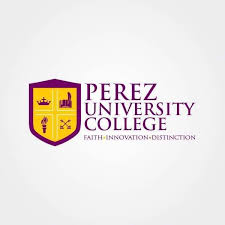AUDA-NEPAD Launches School Feeding Program to Alleviate Hunger and Poverty in Africa

AUDA-NEPAD logo
The Ghana School Feeding Programme, in partnership with the African Union Development Agency (AUDA)-NEPAD, stands out for its robust monitoring system. This system is backed by a modern digital verification tool, developed with support from the World Food Programme (WFP), to ensure the integrity of the Home Grown School Feeding Programme. The initiative aims to address challenges such as misinformation and human interference, ultimately working to reduce hunger and poverty across Africa.
School feeding programmes play a critical role in tackling malnutrition, boosting children’s health, and enhancing their educational performance. These initiatives ensure that children receive at least one nutritious meal during the school day, helping them stay focused and engaged in their studies. In recognition of Ghana’s achievements in school feeding, the AUDA-NEPAD team visited the country to learn about its best practices in the management and implementation of home-grown school feeding. This visit provided an opportunity for Ghana to share its experiences while benefiting from AUDA-NEPAD’s guidance. The event was held on December 11, 2024, at the Alisa Hotel in Accra.
AUDA-NEPAD’s vision for the Home Grown School Feeding Programme is to tap into the potential of local agricultural production. This approach not only supports local farmers but also ensures that children receive nutritious meals sourced from their own communities. The goals of the programme are multifaceted: to improve child nutrition, ensure food security and safety, and reduce poverty, particularly among smallholder farmers. According to Ms. Kefilwe Moalosi, Director of NEPAD’s Nutrition Programme, the Home Grown School Feeding Programme aims to integrate these objectives with broader development goals. During her address at the Stakeholder Consultative Workshop, Moalosi stressed that the programme should focus on enhancing school attendance, reducing dropout rates, and improving children’s learning outcomes.
Moalosi also praised Ghana’s efforts in fostering a strong relationship between local farmers and school caterers. She acknowledged that this partnership has proven crucial for community engagement, economic development, and sustainable implementation of the school feeding programme. By working directly with farmers, the programme not only provides nutritious meals to children but also supports the livelihoods of those in the agricultural sector.
The workshop’s welcome address was delivered by Mad. Paulina Abbey, Director of the Food Safety Desk at the Ministry of Food and Agriculture in Ghana. Abbey underscored the importance of improving the quality of school meals and highlighted the challenges associated with planning nutritious menus. She pointed out that meal planning requires expertise and careful consideration, which is why the ministry is focused on utilizing tools that help streamline the process and ensure that children receive healthy, balanced meals.
Dr. Clement Adjorlolo, Principal Programme Officer for Agriculture and Rural Transformation at AUDA-NEPAD, delivered an inspiring keynote address. He discussed the key objectives of the Home Grown School Feeding Programme, including incubating high-impact projects, promoting regional integration, and mobilizing resources for the implementation of Agenda 2063’s First Ten-Year Implementation Plan. Adjorlolo emphasized that these efforts would help translate the African Union’s strategic development frameworks into tangible results at the national level. He also spoke about the importance of collaboration across African nations, stating, “Together, we can build a brighter future for generations to come. We will only reach our goal of zero hunger if we all walk together.”
Adjorlolo also expressed appreciation for the Ghanaian government’s leadership in adopting and implementing AUDA-NEPAD’s school feeding guidelines. He commended the country for its commitment to scaling up the programme and ensuring its success at the community level. Ghana’s dedication to providing healthy meals to schoolchildren has set a strong example for other African nations.
AUDA-NEPAD’s 2019 data revealed a significant increase in the number of children benefiting from school feeding programmes, with the figure rising from 38.4 million in 2013 to a much higher number in 51 countries. Many African countries are now seeking technical assistance from AUDA-NEPAD to design, implement, and monitor their Home Grown School Feeding programmes. There is also a growing focus on improving the nutritional quality of school meals and expanding the reach of these initiatives.
Dr. Adjorlolo concluded his speech by highlighting that the AUDA-NEPAD Home Grown School Feeding Guidelines aim to support African Union member states in strengthening or establishing their own school feeding programmes. This approach is designed to create a multi-sectoral, win-win scenario that promotes food and nutrition security across the continent.
Currently, Ghana’s School Feeding Programme provides one hot, nutritious meal every school day to students in deprived public basic schools. The programme not only contributes to children’s well-being but also plays a crucial role in improving their academic performance and overall development. By using local produce, Ghana’s initiative is both an investment in the future of its children and a vital support for local farmers.






